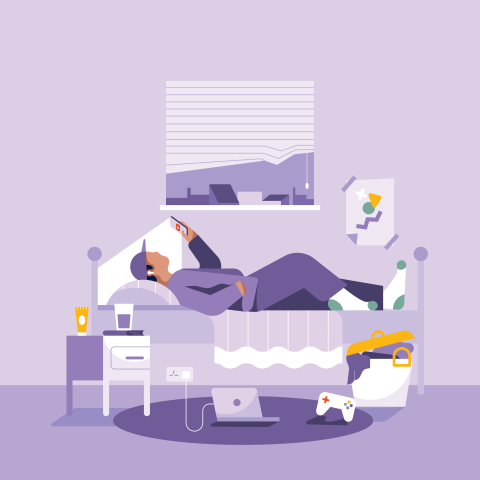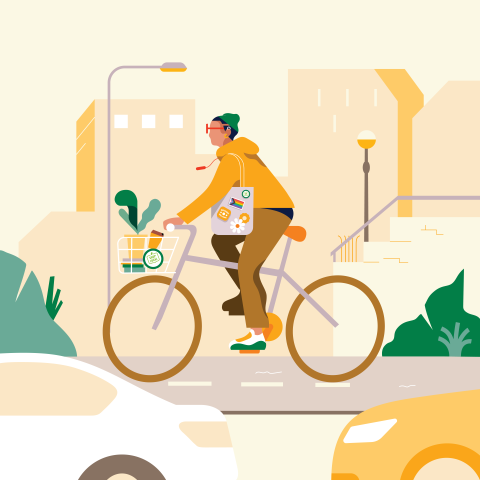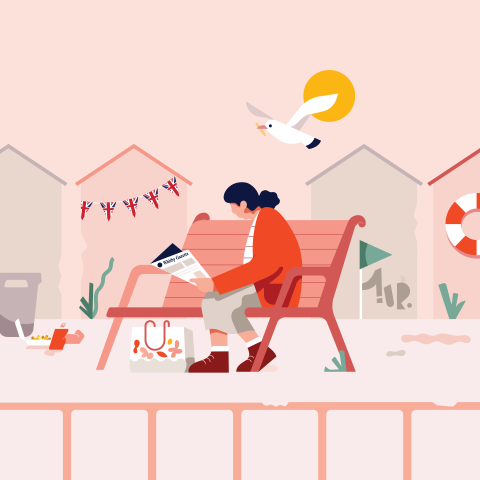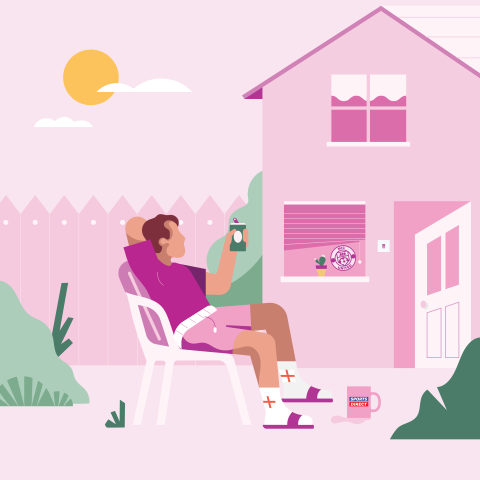10 per cent of the population

A digitally-native group whose unhappiness with the social contract means they have lost faith in traditional institutions and seek alternative sources of truth online. Often shaped by their experience of the Covid pandemic, they prefer individual influencers over mainstream media and are increasingly drawn to conspiratorial thinking.
“Post-Covid I am much more critical about what I read - now I want to do my own research because I don’t trust the government or doctors on everything”
Talia, Leeds
“Most of the things I would read is online and I think Twitter or X is perfect for it because when you go to the comment section you get a different perspective from everybody and I think you tend to find people who have better answers and more truth.”
James, Glasgow
Key words
Online, disengaged, disillusioned, open-minded, non-ideological, untrusting, curious.
What they worry about
The gap between rich and poor, the job market, corruption of politicians, bias in the media, crime, mental health.
Where you might find them
On Discord, Snapchat, TikTok and Reddit; living at home with their parents or in rented accommodation; working multiple jobs; in urban city centres; in constituencies such as Birmingham Perry Barr, Glasgow South, Luton North, Swindon North.
How they get their news
While many do not actively seek out political news, it often comes to them - either while browsing social media or referenced as part of discussion shows they might watch on YouTube for entertainment. They are much less likely to trust information from large media institutions, and more likely to believe information they see from social media users posting directly.
Learn more about Sceptical Scrollers

Nial
Nial graduated from university eighteen months ago with a decent degree but ended up back in his childhood bedroom, working shifts at a garden centre while trying to figure out what comes next. Most evenings he plays FIFA online with his university friends—it's basically the only time they all talk now that they are scattered across the country.
When everyone logs off, Nial usually ends up on YouTube - tonight he started off with a Jonny Harris documentary about the War in Ukraine, then switched to a MrBeast competition video, before putting on a debate by Destiny, following up with Ordinary Things’ latest video essay about what goes on in Davos, then ... before long he can’t remember how he ended up watching what he has ended up on. Nial trusts many of these YouTubers more than politicians these days—at least the creators seem genuine when they are talking to their cameras.
He always means to go to bed early but often finds himself clicking on just one more video, waking up tired with his phone dead beside him. Nial knows he is stuck in a bit of a rut but is not sure how to get out of it—everything feels temporary right now, from his job to living at home, which makes it hard to plan anything properly. His friends seem to be figuring things out faster than he is, and while he is not panicking yet, he is starting to wonder when his real life is supposed to begin.
Nial's relationship with news feels fundamentally different from his parents' generation - he gets most of his information through YouTube and TikTok rather than traditional outlets, often finding himself more informed about global events than local politics. When his colleagues mention something she saw on BBC News, he'll usually have already seen three different takes on it from YouTubers he follows, each offering perspectives that feel more honest than whatever sanitised version the mainstream media presented. He has developed his own system for cross-referencing information, checking multiple sources and reading comment sections where he often finds the most interesting insights, though he knows his parents would call this "going down rabbit holes."
The disconnect between what he was promised about post-university life and his current reality has left Nial questioning most of the conventional wisdom he grew up with. He was told that a degree would lead to a good job, that hard work pays off, that the system basically functions - but eighteen months of rejected job applications and temporary work have made him wonder if these were just stories told to keep people under control.
Nial's social media feeds have become his primary window into the world, a constant stream of content that ranges from genuinely informative to completely absurd. He is aware that algorithms are probably manipulating what he sees, but he trusts his ability to think critically about what he encounters - even if that sometimes leads him down paths his university lecturers would have discouraged. The line between entertainment and information has blurred completely in his media consumption.
Explore the other Segments:





